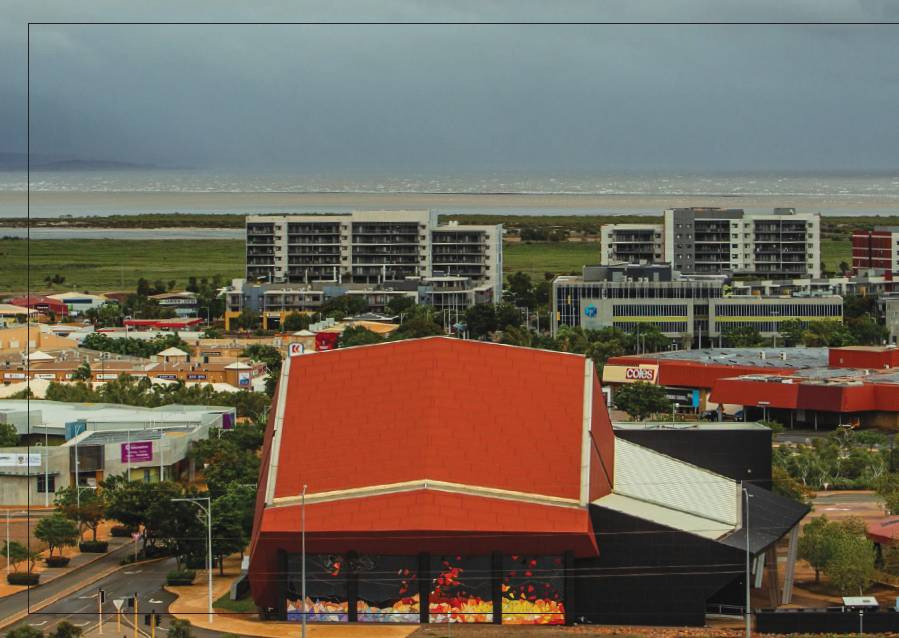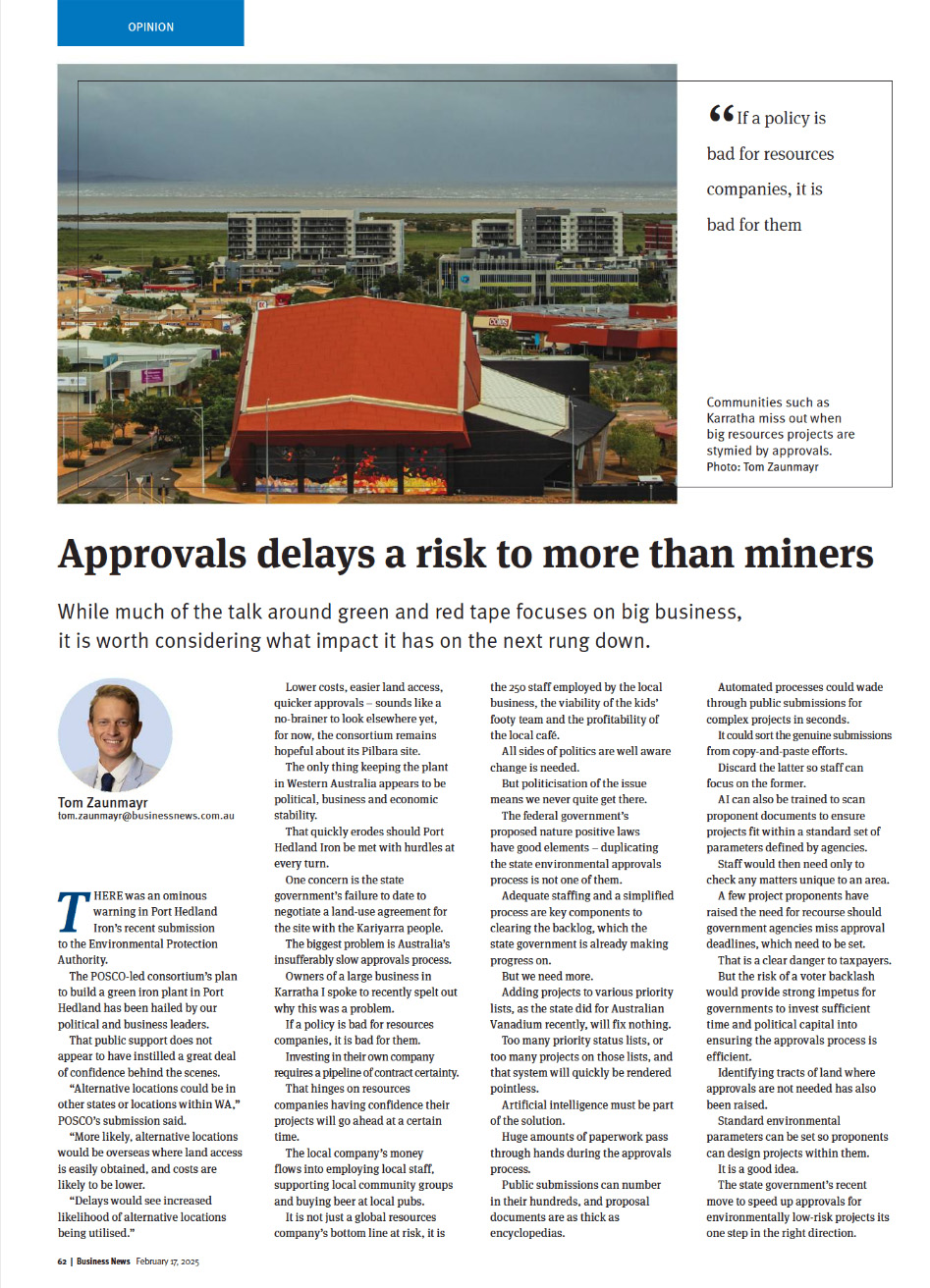Article by Tom Zaunmayr, courtesy of Business News.

While much of the talk around green and red tape focuses on big business, it is worth considering what impact it has on the next rung down.
THERE was an ominous warning in Port Hedland Iron’s recent submission to the Environmental Protection Authority.
The POSCO-led consortium’s plan to build a green iron plant in Port Hedland has been hailed by our political and business leaders.
That public support does not appear to have instilled a great deal of confidence behind the scenes.
“Alternative locations could be in other states or locations within WA,” POSCO’s submission said.
“More likely, alternative locations would be overseas where land access is easily obtained, and costs are likely to be lower.
“Delays would see increased likelihood of alternative locations being utilised.”
Lower costs, easier land access, quicker approvals – sounds like a no-brainer to look elsewhere yet, for now, the consortium remains hopeful about its Pilbara site.
The only thing keeping the plant in Western Australia appears to be political, business and economic stability.
That quickly erodes should Port Hedland Iron be met with hurdles at every turn.
One concern is the state government’s failure to date to negotiate a land-use agreement for the site with the Kariyarra people.
The biggest problem is Australia’s insufferably slow approvals process.
Owners of a large business in Karratha I spoke to recently spelt out why this was a problem.
If a policy is bad for resources companies, it is bad for them.
Investing in their own company requires a pipeline of contract certainty.
That hinges on resources companies having confidence their projects will go ahead at a certain time.
The local company’s money flows into employing local staff, supporting local community groups and buying beer at local pubs.
It is not just a global resources company’s bottom line at risk, it is the 250 staff employed by the local business, the viability of the kids’ footy team and the profitability of the local café.
All sides of politics are well aware change is needed.
But politicisation of the issue means we never quite get there.
The federal government’s proposed nature positive laws have good elements – duplicating the state environmental approvals process is not one of them.
Adequate staffing and a simplified process are key components to clearing the backlog, which the state government is already making progress on.
But we need more.
Adding projects to various priority lists, as the state did for Australian Vanadium recently, will fix nothing.
Too many priority status lists, or too many projects on those lists, and that system will quickly be rendered pointless.
Artificial intelligence must be part of the solution.
Huge amounts of paperwork pass through hands during the approvals process.
Public submissions can number in their hundreds, and proposal documents are as thick as encyclopedias.
Automated processes could wade through public submissions for complex projects in seconds.
It could sort the genuine submissions from copy-and-paste efforts.
Discard the latter so staff can focus on the former.
AI can also be trained to scan proponent documents to ensure projects fit within a standard set of parameters defined by agencies.
Staff would then need only to check any matters unique to an area.
A few project proponents have raised the need for recourse should government agencies miss approval deadlines, which need to be set.
That is a clear danger to taxpayers. But the risk of a voter backlash would provide strong impetus for governments to invest sufficient time and political capital into ensuring the approvals process is efficient.
Identifying tracts of land where approvals are not needed has also been raised.
Standard environmental parameters can be set so proponents can design projects within them.
It is a good idea. The state government’s recent move to speed up approvals for environmentally low-risk projects its one step in the right direction.
